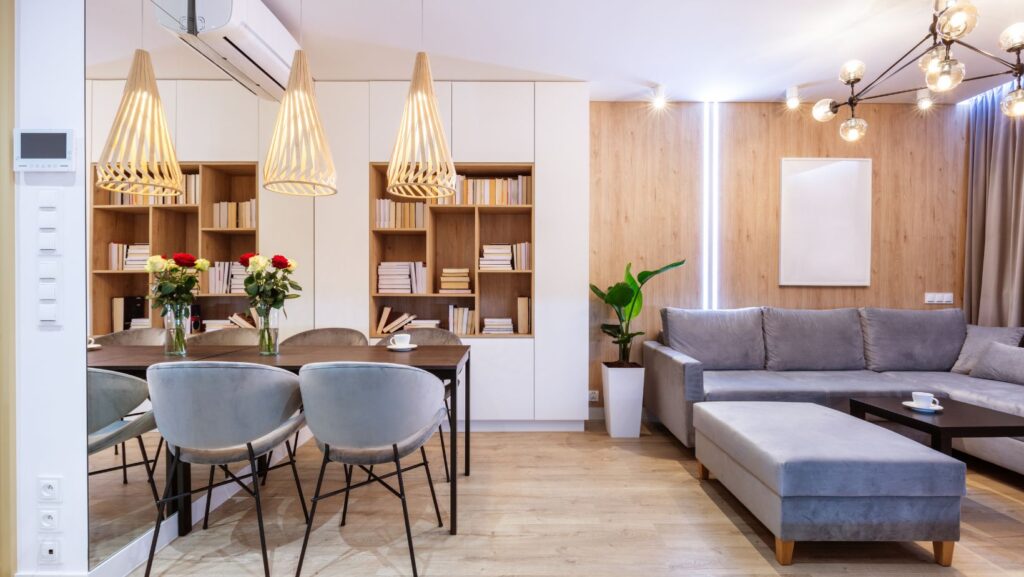
Moving into a new home can be both exciting and daunting. From packing up your belongings to making your new space feel like home, there’s plenty to manage. One key aspect that many people overlook until the last minute is furniture—whether to rent or buy. Both options have their merits, and understanding the pros and cons of each will help make your move smoother. In addition to the practicalities of acquiring furniture, it’s also essential to consider protections like renters insurance, which can cover unexpected issues. Here’s a comprehensive guide on renting versus buying furniture and why having renters insurance is a must.
Renting Furniture: Flexibility and Convenience
When to Consider Renting Furniture
Renting furniture is becoming increasingly popular, especially for people who are in temporary living situations. If you’re a student, on a work assignment in a new city, or not ready to commit to buying furniture, renting offers a flexible solution.
- Short-Term Stay: If you’re staying in a place for less than a year, renting furniture makes sense. Buying furniture for a temporary situation can be costly and burdensome, especially when you need to sell or move it later.
- Corporate Moves: For professionals relocating for work, renting furniture can simplify the transition. Many furniture rental services offer packages tailored to corporate apartments, which saves time and hassle.
- Trying Out a New City or Home: If you’re unsure how long you’ll stay in a particular location, renting gives you the flexibility to furnish your home without long-term commitments. Plus, if your style or needs change, you can swap out pieces easily.
Benefits of Renting Furniture
- No Upfront Investment: Unlike buying, renting doesn’t require a large initial expense. You’ll pay a monthly fee, which can fit more easily into your budget, especially when you’re dealing with other moving costs like deposits, utilities, and moving fees.
- Hassle-Free: Many rental companies offer delivery, assembly, and even maintenance services. This is ideal for people who don’t want to deal with the stress of buying, moving, and setting up heavy furniture pieces.
- Flexibility: With renting, you can often upgrade or change your furniture if you move to a different space or your needs evolve. For example, if you need a larger couch or a new bed, you can exchange your rental items with ease by following these tips on how to move heavy furniture.
Drawbacks of Renting Furniture
- Higher Long-Term Costs: Over time, renting furniture can be more expensive than buying. If you plan to stay in one place for several years, you may end up spending more on rental fees than you would if you purchased the furniture outright.
- Limited Ownership: Since you don’t own the furniture, you won’t have the ability to sell it when you no longer need it. Additionally, you may face penalties for damage beyond normal wear and tear.
Purchasing Furniture: Long-Term Investment
When to Consider Buying Furniture
Buying furniture is often the best choice for those settling into a long-term home. If you know you’ll be staying in one place for a while, investing in quality furniture can save you money in the long run and give you more control over the aesthetic of your home.

- Long-Term Residency: If you’re planning to stay in your home for at least a few years, buying furniture makes more financial sense. You’ll spread the cost of the furniture over the duration of your stay, and eventually, the pieces will be yours without ongoing payments.
- Customization: When you own your furniture, you can invest in exactly the pieces that fit your style, space, and needs. Whether you prefer a sleek modern look or a cozy, rustic vibe, buying allows you to curate a space that reflects your personality.
Benefits of Purchasing Furniture
- Ownership: When you buy furniture, it’s yours to keep, sell, or pass on as you wish. There’s no ongoing fee, and you’ll eventually pay off the cost of the furniture, making it a better long-term financial decision for many people.
- Customization and Personalization: Owning your furniture allows for greater customization. You can choose high-quality, durable pieces that will last, or opt for budget-friendly options that can be swapped out later.
- Resale Value: If you take good care of your furniture, you may be able to sell it when you move, recouping some of your investment.
Drawbacks of Purchasing Furniture
- Upfront Cost: The initial expense of buying furniture can be significant, especially if you’re furnishing an entire home. For some, this may be prohibitive, particularly when also dealing with moving costs.
- Transport and Setup: Moving heavy furniture is a major hassle. If you plan to relocate frequently, you’ll need to deal with moving logistics, which can be costly and stressful.
Renters Insurance: Protecting Your Investment
Whether you rent or buy your furniture, it’s crucial to protect your belongings with renters insurance. Renters insurance can cover you in the event of theft, fire, water damage, or other unexpected problems. Here’s why it’s essential:
Coverage for Unexpected Damage
Even if you take great care of your furniture, accidents happen. A burst pipe, electrical fire, or natural disaster could ruin your belongings. Renters insurance can help cover the cost of replacing or repairing your furniture in such situations.
Protection from Theft
If your home is burglarized, renters insurance can cover the cost of stolen items, including furniture.

This is particularly important if you’ve purchased expensive furniture that would be costly to replace.
Liability Coverage
Renters insurance can also protect you in case someone is injured in your home. If a guest trips over your coffee table and sues for medical costs, your insurance could help cover those expenses.
Peace of Mind
Moving can be stressful enough without worrying about what might go wrong. Renters insurance offers peace of mind, knowing that your belongings are covered in case of an emergency.
Conclusion
Whether you choose to rent or buy your furniture, each option comes with its own set of advantages. Renting offers flexibility and convenience for short-term stays, while buying is a better investment for those settling in for the long term. No matter which route you choose, protecting your belongings with renters insurance is a smart move. It provides essential coverage for theft, damage, and liability, ensuring that your move is as smooth and worry-free as possible.












